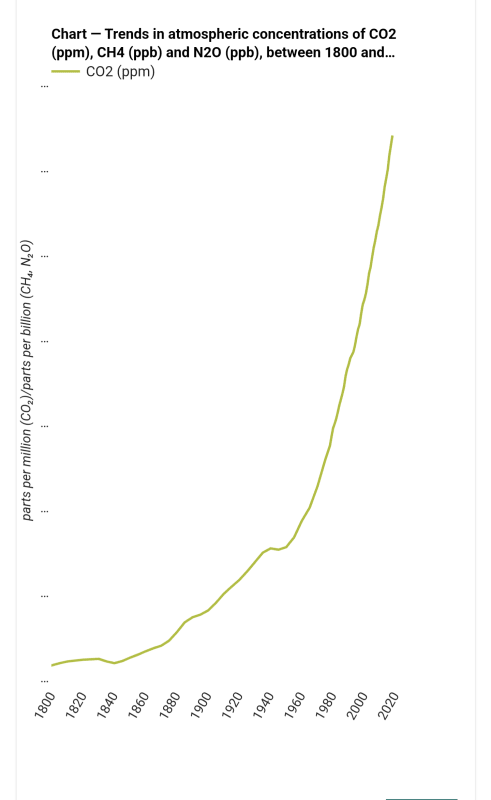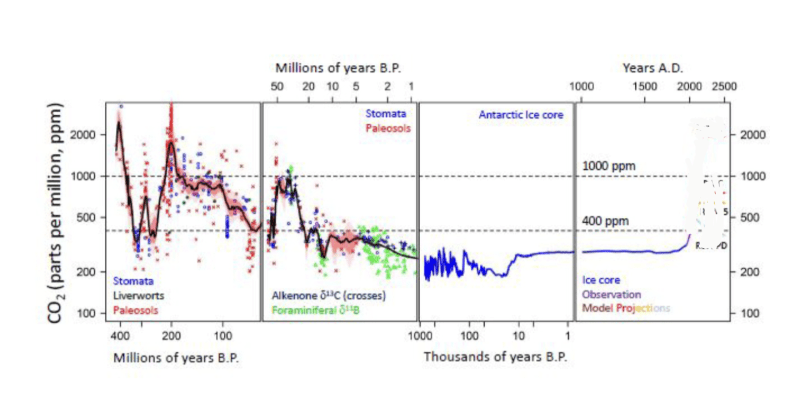I wrote this a long time ago,
nothing has changed
The climate of the Earth is difficult to characterise and measure. One subset of climate is the average global temperature over a suitable time period, measured near the Earth's surface. This temperature has varied historically over a wide range. It is affected by many factors, both known and unknown. The main factor is the albedo of the Earth and the incoming energy from the Sun. These two directly interact and the combined effect raises the temperature of the Earth by about 250 deg C, from the background temperature of space which is about -270 deg C . The next most significant effect is the greenhouse effect of the atmosphere, which raises the temperature by about 33 deg C. This is due to several mechanisms associated with turning incoming EM waves into heat (badly phrased) , and also complex interactions with the heat radiated by the Earth's surface, and probably some other knowns and unknowns. The greenhouse effect is affected by the gaseous composition of the atmosphere, and clouds. The most important gas for greenhouse is water vapour, approximately 80% of the non-cloud greenhouse effect is due to that. Water also directly affects the albedo of the Earth by forming clouds and snow and ice. Of the remainder the majority is due to CO2. In the absence of any other effects a further doubling of the proportion of CO2 in the atmosphere would be expected to raise the temperature by rather less than, but approximately, 1 deg C. However, this is a very weak effect and is easily dominated over any timescale from hours to hundreds of millions of years by the many known and unknown factors. There may be positive or negative feedbacks associated with temperature changes, which may modify this 1 deg figure. There are certainly simple feedback effects associated with CO2 levels, eg the greening of the Earth (
which will affect both the Earth's albedo and weather patterns. On the other hand the melting of the Arctic ice cap will reduce the Earth's albedo, so that's a positive feedback. One other overwhelmingly strong effect on an hourly to century timescale (at least) is the interaction between the oceans and the atmosphere. The thermal capacity of the oceans is about 1000 times that of the atmosphere. That is, cooling the ocean by 0.01 deg C (that's the limit of resolution of a thermometer typically, accuracy is perhaps 0.1 deg C) would provide enough heat to heat the atmosphere by 10 deg C. The interaction between oceans and atmosphere is hugely complex and data is lacking.
As to where the CO2 comes from - if you add up all the CO2 emitted by burning fossil fuels since 1880, it is about twice as much as the change in CO2 in the atmosphere. According to the DOE we've emitted 389 E12 kg of C. In that time the ppm of CO2 has increased from 280 to 400 and the mass of the atmosphere is 5.1480E18. The mean molecular mass of the atmosphere is 29 and CO2 is 44 obviously. So the mass of CO2 in the atmosphere has gone from 280E-6*44/29*5.1E18=2.2E15 kg to 400E-6*44/29*5.1E18=3.1E15 kg
And from the above we've created 389E12*44/12=1.4 E15 kg, of which 0.9E15 is still in the atmosphere (glad that came out right!)
Cheers
Greg Locock
New here? Try reading these, they might help FAQ731-376


